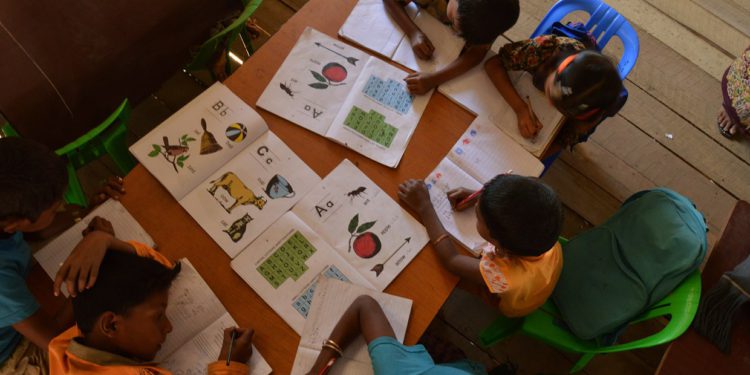Hyderabad: Children in remote tribal areas face difficulties when it comes to accessing education and the issue became worse during the Covid lockdown.
Oftentimes, NGOs and volunteers go to tribal villages and hold education camps, classes, training sessions but these activities were practically stopped during the lockdown. But recently, in an attempt to help tribal children overcome these issues, People Helping Children (PHC), a Hyderabad-based NGO, took note of three such tribal villages in Mulugu district and set up learning centres there.
“We came to know of three tribal villages — Devunigutta, Mondyala Toghu and Chintala Mori — in Mulugu district where there are about 70 children between the ages of 5 years to 9 years. Almost all of these children come from tribal families that migrated from Chhattisgarh over the last 10 years because of Maoist issues there and these children have no access to primary education,” shares Bogam Santosh, the founder of PHC.
According to him, there is an Ashrama Patashala about 20 km away but that is for secondary education.
To address the issue of primary education, PHC established a learning centre in each of the three villages, wherein a local educated person has been appointed as a teacher. An interesting part of these learning centres is that they are attempting to adopt a unique methodology and syllabus to enable quick learning.
The NGO has several mentors who advise on various aspects and it has been working on a syllabus based on their advice. “We are attempting to figure out a syllabus where the older children can be made ready to join the Ashrama Patashala within a year or so, to ensure their crucial years are not lost. The three teachers are also being trained in these methodologies and syllabi,” explains Santosh, who took up this initiative after being requested to do so by the local elected representative.
In addition to setting up the learning centres and equipping them with the basic infrastructure like white boards, the 150 plus strong youth NGO has also given the 70 children all the necessary stationary to sustain for at least one academic year.


















